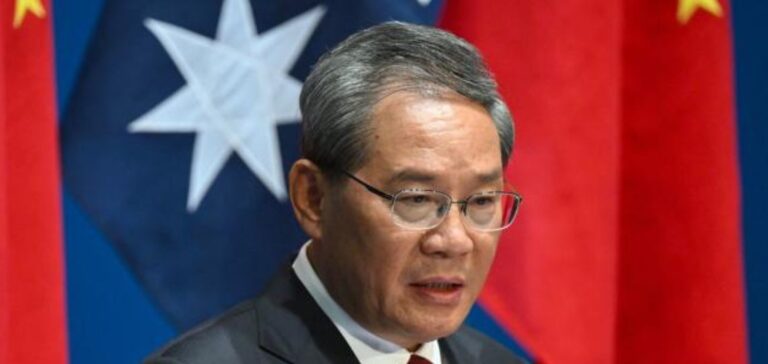Chinese Premier Li Qiang has completed a four-day visit to Australia, marked by a strategic visit to a lithium refinery in Perth. This visit testifies to China’s growing interest in Australian mineral resources, essential for the production of electric vehicles. Tianqi Lithium Energy Australia, a majority Chinese-owned company, was at the center of this attention, underlining the importance of Australian lithium to the Chinese supply chain. Australia is the world’s leading lithium producer, accounting for 52% of global production. Most of this lithium is exported to China for refining, mainly for use in electric vehicle batteries. This situation reinforces the mutual dependence between the two nations in the green technology sector.
Tensions and Foreign Investment
Chinese investment in Australia is a sensitive subject. In March, Australian Finance Minister Jim Chalmers forced five Chinese shareholders to sell their shares in Northern Minerals, citing national security concerns. Northern Minerals, a producer of dysprosium, a critical element for high-performance magnets in electric vehicles, holds a strategic position in Western Australia. Marina Zhang, Associate Professor at the University of Technology Sydney, explains that the Western perception of Chinese investment as a threat contrasts with Beijing’s position as a contributor to development and environmental protection. The professor stresses the difficulty of developing supply chains independent of China in the short to medium term.
Innovative Initiatives and Diplomatic Relations
Alongside the lithium refinery, Li Qiang visited a green hydrogen research center east of Perth, part of a mining group owned by billionaire Andrew Forrest. This center is dedicated to the development of future fuels produced from renewable energies. Andrew Forrest welcomed the lifting of export surcharges on many Australian products, stressing the importance of maintaining good trade relations with China. Despite the diplomatic advances, Li Qiang’s visit was not without controversy. Australian journalist Cheng Lei, detained in China for over three years, accused Chinese diplomats of deliberately blocking her access to the cameras at the press conference in Canberra. The Australian authorities expressed their concern to the Chinese embassy, adding a note of tension to the official visit. Li Qiang’s visit to Australia highlights the strategic importance of Australia’s natural resources for China and the ongoing diplomatic challenges between the two nations. While China continues to invest heavily in mineral resources, Australia seeks to balance economic benefits with national security concerns.






















